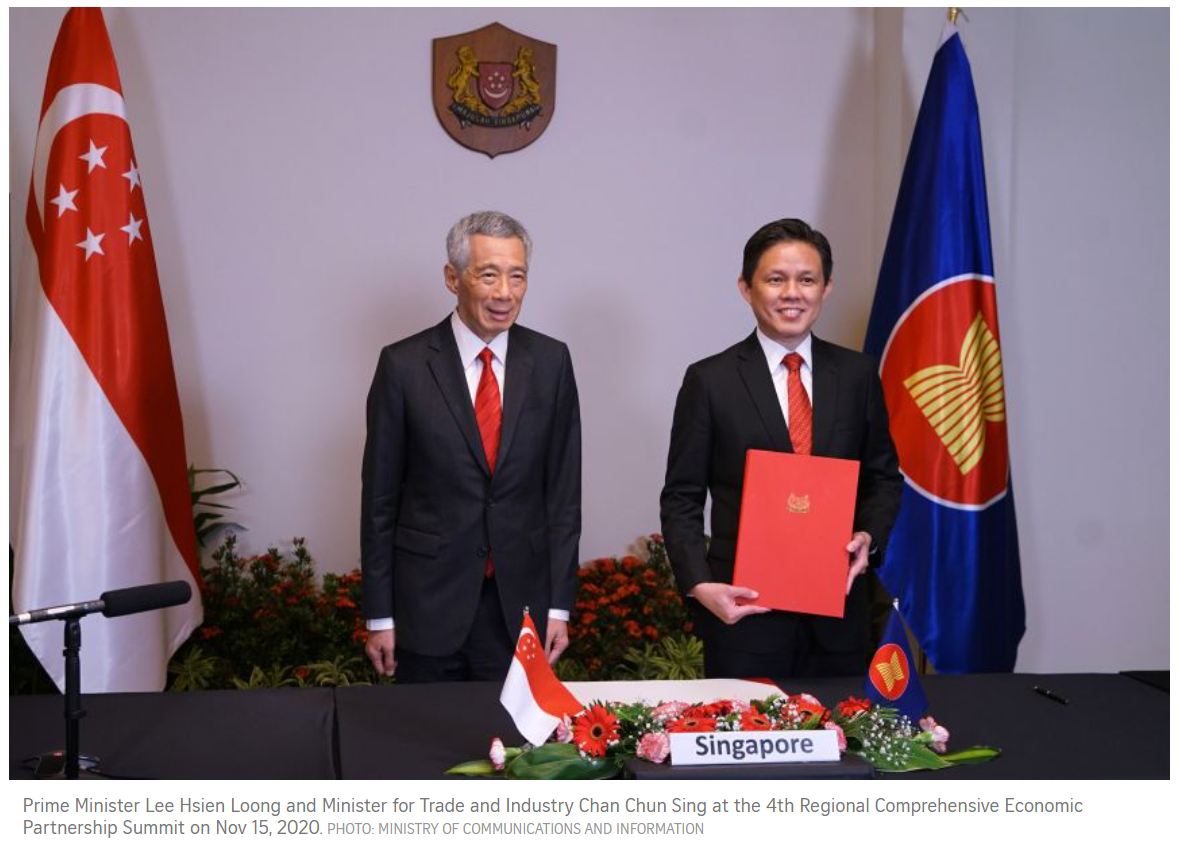Singapore first among RCEP participating countries to ratify world’s largest trade pact
SINGAPORE – Singapore has ratified the Regional Comprehensive Economic Partnership (RCEP) and deposited its ratification instrument, becoming the first participating country to complete the official process.
All 10 Asean members and key partners Australia, China, Japan, New Zealand and South Korea signed the trade pact, the world’s largest, at the 4th RCEP Summit last November.
Trade and Industry Minister Chan Chun Sing said in a statement on Friday (April 9) that the Republic’s expeditious ratification of the agreement signals the country’s strong commitment to strengthening its trade and economic linkages with its partners, which will benefit its businesses and people.
He added: “We look forward to our fellow RCEP participating countries doing likewise, to expedite the entry into force of the agreement.”
The agreement will enter into force 60 days after it has been ratified by at least six Asean member states and three non-Asean signatories and their instruments of ratification, acceptance or approval have been deposited with the Asean secretary-general, who has been designated as the depositary for the RCEP agreement.
RCEP participating countries are targeting for the pact to enter into force on Jan 1, 2022.
Singapore deposited its instrument of ratification on Friday, said the Ministry of Trade and Industry in the statement.
While China and Thailand have completed their domestic ratification processes, they have yet to deposit their instruments of ratification with the Asean secretary-general.
In February, Japan’s Cabinet approved a Bill to ratify the trade agreement.
The RCEP builds upon existing trade deals among its 15 member countries, which together account for 30 per cent of the global economy and one-third of the world’s population.
It will ease goods and services trade, facilitate the flow of foreign investments, and enhance protections in areas such as e-commerce and intellectual property.
The RCEP will eliminate tariffs for about 92 per cent of goods on average, with additional preferential market access for specific products such as plastics and mineral fuels in selected markets such as China, Japan and South Korea.
Under the agreement, more companies will be able to provide services in the region, with foreign shareholding limits raised for at least 50 sub-sectors, including professional services, telecommunications and financial services. A more transparent approach will also allow for greater certainty for businesses.
Other benefits of the trade deal include simplified procedures for more efficient clearance of goods, including the release of express consignments and perishables within six hours.
Businesses will also be protected from anti-competitive activities through competition law regimes and cross-border enforcement cooperation.
The trade pact will complement Singapore’s existing network of free trade agreements, expand its economic space, and boost trade and investment flows, MTI said.
The ministry has been working actively with various business associations and chambers to organise outreach sessions and webinars to support the local business community in understanding the RCEP agreement and how they may benefit from it when it enters into force, it added.
Source: https://www.straitstimes.com/business/economy/singapore-first-among-rcep-participating-countries-to-officially-ratify-worlds


 English
English




